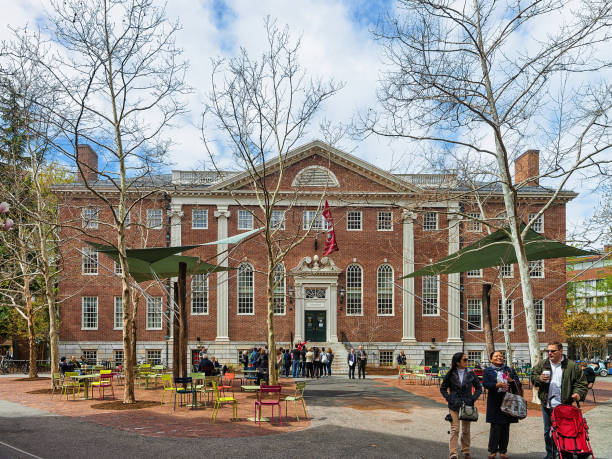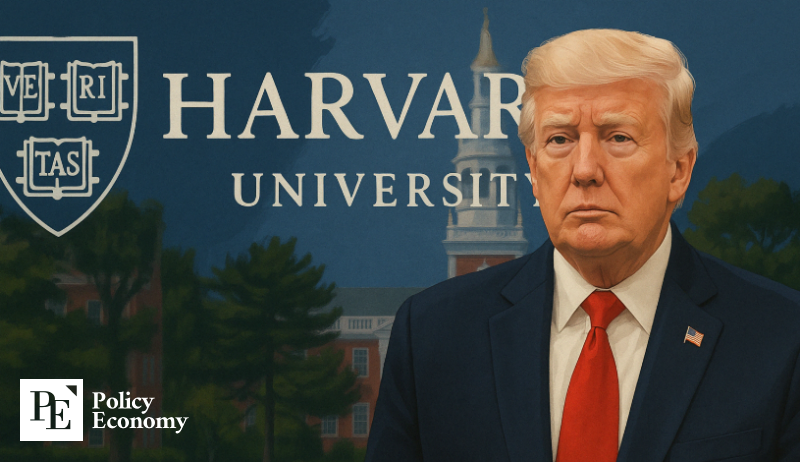Harvard in Conflict with Trump: “Avoid Boston Airport, Use JFK Instead” — Warning Issued to Chinese and Iranian Students
Input
Modified
Harvard University Advises Avoiding Logan Airport Separate Guidance Issued for Iranian and Chinese Students AI and Engineering Majors Also Urged to Exercise Caution

Harvard University has reportedly advised international students preparing to enter the United States to avoid using Boston’s Logan International Airport and instead opt for alternatives such as JFK Airport in New York. In particular, the university has urged students of Chinese and Iranian nationality to exercise special caution, citing potentially stricter immigration screening.
"Social Media and Electronic Devices May Be Checked, Possibly by AI"
According to the Times of India (TOI) on July 8 (local time), Harvard’s Office of International Education and its legal support team recently held a closed online briefing for international students. In the session, they stated, “Immigration screening at Logan Airport has involved high levels of inspection and device checks, so it may be better to enter the country via JFK, Chicago O’Hare, or Los Angeles International Airport.” The session was hosted by Harvard Law School’s Immigration and Refugee Clinic.
During the briefing, Harvard explained that “The U.S. State Department may review social media accounts during the visa screening process, and Customs and Border Protection (CBP) may access data stored on electronic devices such as mobile phones and laptops. Admission may be denied based on the content stored on these devices.” The university added, “It is unclear whether such analysis is conducted by humans or by artificial intelligence (AI),” and warned that “content supporting Palestine, expressing antisemitic or anti-American sentiments, or even minor past legal issues could influence immigration decisions.” However, they cautioned against fully resetting devices before departure, as this could arouse further suspicion.
According to attendees, Jason Corral, an attorney on Harvard’s legal team, stated, “Iranian students in particular have often faced unusually intense screening at Logan Airport,” and added, “Though we don’t have definitive evidence, JFK, Chicago, or LA airports may be better alternatives.” Harvard further emphasized that students studying in STEM (Science, Technology, Engineering, Mathematics) or AI-related fields may be subject to particularly sensitive questioning during immigration procedures.

Protecting International Students Amid Tensions with Trump Administration
This guidance comes amid ongoing tensions between Harvard University and former President Donald Trump’s administration. During his first term, Trump consistently criticized Harvard’s international student recruitment programs, diversity policies, and political orientation. More recently, his administration moved to cancel approximately $2.6 billion in federal research funding and questioned the university’s tax-exempt status, continuing to apply pressure.
In May, Trump proposed that the percentage of international students at Harvard should be limited to around 15%, instead of the current 31%. According to Harvard, international students currently make up about 27% of its 6,800 enrolled students. This figure has steadily risen from 19.6% in 2006, but remains below Trump’s proposed threshold. However, if fellowship and non-degree program participants are included, the total number of international students on campus exceeds 10,000.
That same month, the U.S. State Department also began canceling visas for Chinese students. On May 28, Secretary of State Marco Rubio announced via X (formerly Twitter), “The United States has begun canceling visas for Chinese students,” specifically targeting those affiliated with the Chinese Communist Party (CCP) or engaged in sensitive research areas. On the same day, the State Department issued a statement under Rubio’s name titled “A New Visa Policy That Puts America First, Not China,” declaring cooperation with the Department of Homeland Security on the issue.
The statement followed a directive instructing U.S. embassies worldwide to suspend visa interviews for international students. Analysts interpreted the focus on China as connected to broader issues such as trade disputes. Axios, citing a senior U.S. official, reported, “Rubio’s announcement occurred simultaneously with U.S.-China trade negotiations,” adding, “Everything is interconnected.” The outlet noted that “Secretary Rubio has long been a China hawk,” and recalled his efforts in 2018 as a U.S. Senator to successfully ban Confucius Institutes—Chinese government-funded cultural centers—from Florida’s universities.
China: “Political Discrimination, Strong Opposition”
In response, the Chinese government immediately condemned the measures as political discrimination. Chinese Foreign Ministry spokesperson Mao Ning stated, “The U.S. is using ideology and national security as pretexts to arbitrarily cancel Chinese student visas, severely infringing on their legitimate rights and interests.” She warned that such actions would “significantly disrupt normal cultural and educational exchanges between the two countries.” Mao continued, “China strongly opposes this and has lodged a diplomatic protest with the U.S.,” and added, “This politically discriminatory act reveals the hypocrisy behind the U.S.’s so-called values of ‘freedom and openness’ and further damages its own national image and credibility.”
China’s Ministry of Education also issued a travel warning concerning study in the United States. In particular, the ministry cited a recent bill passed by the Ohio House of Representatives, stating that it included “anti-China provisions.” It advised that “students considering studying in the affected states should conduct a thorough safety risk assessment.” Although the bill has not yet taken effect—pending approval by the state Senate and signature by Governor Mike DeWine, a Republican aligned with Trump—Republican lawmakers in Ohio issued a statement following the bill’s passage in the House, emphasizing their intent to “strengthen protections against foreign influence and safeguard Ohio’s institutions from interference by the People’s Republic of China.”
This is not the first time that the U.S. Congress has taken measures to restrict the entry of Chinese students on national security grounds. The most recent example involved letters sent by the House of Representatives to six U.S. universities, including Stanford University and Carnegie Mellon University, requesting policy details concerning Chinese students. The requested information reportedly included full lists of Chinese nationals enrolled, the names of their previous institutions, sources of tuition funding, and the types of research and academic programs in which they are participating.






















Comment